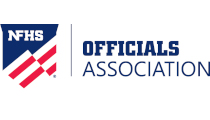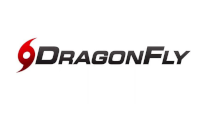Managing Controversy and Anger - Handling Officials Complaints
By Ken Devoe on September 14, 2016 officials Print
As high school sports officials, we’ve all experienced the complaints of coaches, athletic directors, players, parents or other spectators who feel outraged that a call or even entire game turned against them by our action or inaction. If that outrage takes the form of booing in the gym or on the field or ice, that’s part of the game and it’s what we’ve signed up for. However, today there is an increasing propensity of people criticizing sports officials in a very public manner. Increased TV coverage of high school games as well as the power of social media have enabled criticism of sports officials, no matter how unwarranted, to take on a life of its own to the detriment of the sport, as well as the reputation of officials, and yes, even their safety.
What can we do about it? There are some remedies at hand, and in at least one state, there is an established communications protocol for handling complaints in a civil, professional and respectful manner designed to resolve those complaints.
We’ll get to the protocol shortly. First, let’s look at one of the potential remedies that is already on the books – namely, in your NFHS rulebook. It is the Code of Ethics. There’s one for coaches as well as one for officials. That’s important to remember. When it comes to excessive complaining, an official can be not only be the recipient of complaints directed at him or her but the generator of complaints directed at a school or a coach in a public manner that is inappropriate and unprofessional.
One of the key provisions of the Coaches’ Code of Ethics states: “The coach shall respect and support contest officials. The coach shall not indulge in conduct which would incite players or spectators against the officials. Public criticism of officials or players is unethical.” By virtue of their position, coaches at NFHS member schools have agreed to honor the Code. Unfortunately, not all do.
In Connecticut, the governing body of high school sports, the Connecticut Interscholastic Athletic Conference (CIAC) felt a mechanism was needed to address the issue. About six years ago, the CIAC established a Communications Protocol which specifies processes for lodging complaints and pursuing possible resolutions of those complaints in a professional, polite and civil way, while protecting officials from unnecessary and uncalled-for abuse. The protocol includes procedures and guidelines for member schools to lodge a complaint or express a concern about game officials and, conversely, procedures that officials and/or officials’ associations should follow if they want to complain about a coach.
The following are key provisions:
COMMUNICATION PROTOCOL BETWEEN MEMBER SCHOOLS AND OFFICIALS’ GROUPS
The CIAC Board of Control expects principals to remind all of the coaches of their responsibilities as role models for good sportsmanship, especially in their interaction with the officials during the game and immediately after the contest. It is inappropriate for coaches to confront an official after a game and to publicly criticize the game officials in the media. It is also important that officials conduct themselves in a professional manner at all times and be a calming force when confronted with a volatile situation. The communication protocol has been established to continue to enhance the personal and professional relationship between member schools and officials’ groups and to keep the lines of communication open for mutual benefit. It is the expectation of the CIAC Board of Control that this protocol will be followed by all parties to resolve issues that may arise.
LODGING A COMPLAINT – MEMBER SCHOOLS TO OFFICIALS’ GROUPS
To lodge a complaint or express a concern regarding game officials or other members of the officials’ association, coaches and others should work through the athletic director of the school. The athletic director will contact the assigner first, or the president of the officials’ board, only when necessary so the matter can be referred to the person or group designated by the board to handle issues of this nature. Depending on the nature of the complaint, the officials’ board may request that the concern be expressed in writing. The appropriate individual will look into the matter and follow-up with the athletic director.
LODGING A COMPLAINT – OFFICIALS’ GROUPS TO MEMBER SCHOOLS
To lodge a complaint regarding a coach or to express other school-related concerns, the official or the association should work through the assigner or the person or group designated to handle issues of this nature. The appropriate individual will contact the athletic director first or the principal, only when necessary. Depending on the nature of the complaint, the school may request that the concern be expressed in writing. The athletic director will look into the matter and follow-up with the appropriate person.
RESOLUTION
The goal is for all parties to be satisfied that the concern was addressed appropriately and in a timely manner. Also, that the matter was handled with professionalism and through proper channels. The expectation is that every effort will be made by all parties to resolve the issues on the local level. If an impasse results related to any of the conditions of any agreement, the matter can be referred to the CIAC Officials Committee for a resolution, only if necessary.
The key point is that there are proper channels established by the CIAC protocol through which the complaining party should move to address their complaint. A school should not confront an official directly, nor should an official confront a coach or A.D. directly with a complaint.
According to Joe Tonelli, director of the CIAC Officials Association, this communications protocol has worked very well.
“It gives everyone a roadmap to follow and helps prevent individual incidents from taking on a negative life of their own,” Tonelli said. “As a result, we have had good success in solving problems in a professional manner.”
Tonelli notes that people approach the CIAC with their complaints because they believe the CIAC is in charge of everything and everyone involved in high school sports, which they aren’t.
“We prefer that issues and problems get resolved locally. When we are contacted by individuals with an issue, we redirect them to the protocol as the way to handle things, and that works, as opposed to going to the media, which is absolutely the wrong thing to do.”
One of the reason the Communications Protocol has worked well in Connecticut is that all parties – member schools and officials’ associations – realize that cooperation is central to managing complaints and resolving issues. Tonelli reminds us that when it comes to diffusing and solving problems and complaints, we’re all in this together:
“Our goal is to enhance relationships between officials’ organizations and the schools we serve. We believe good communication solves a lot of problems. This is part of the reason for having officials, coaches, ADs, and schools as part of our team – to be able to establish a line of communication.”
Ken Devoe
Ken Devoe is a freelance writer specializing in corporate communications. He has officiated high school basketball for the last 15 years in the New Haven, Connecticut area and is past president of IAABO Board 10. Devoe is also a member of the NFHS Officials Editorial Board.
Most Recent Articles
- nfhs news NFHS Learning Center Delivers 25 Millionth Course
- Track & Field/Cross Country article Effective Communication with Athletes and Coaches
- nfhs news Player Equipment Changes Highlight 2025 High School Football Rules Revisions
- Player Equipment Changes Highlight 2025 High School Football Rules Revisions
- nfhs news Judgment Call on Second Contact Eliminated in High School Volleyball






